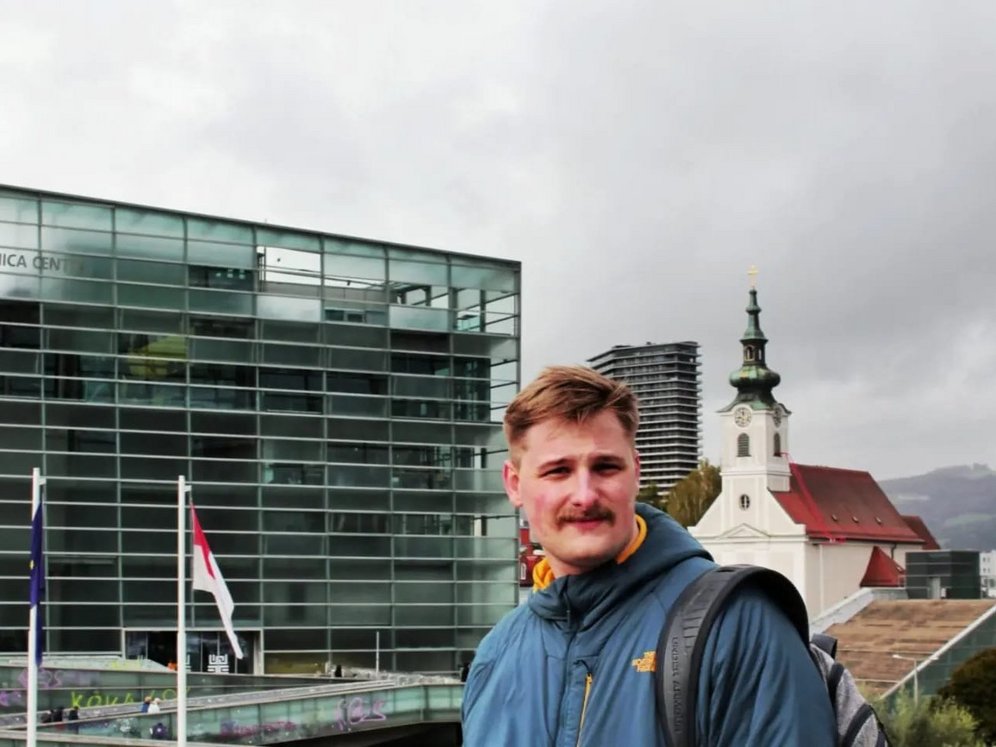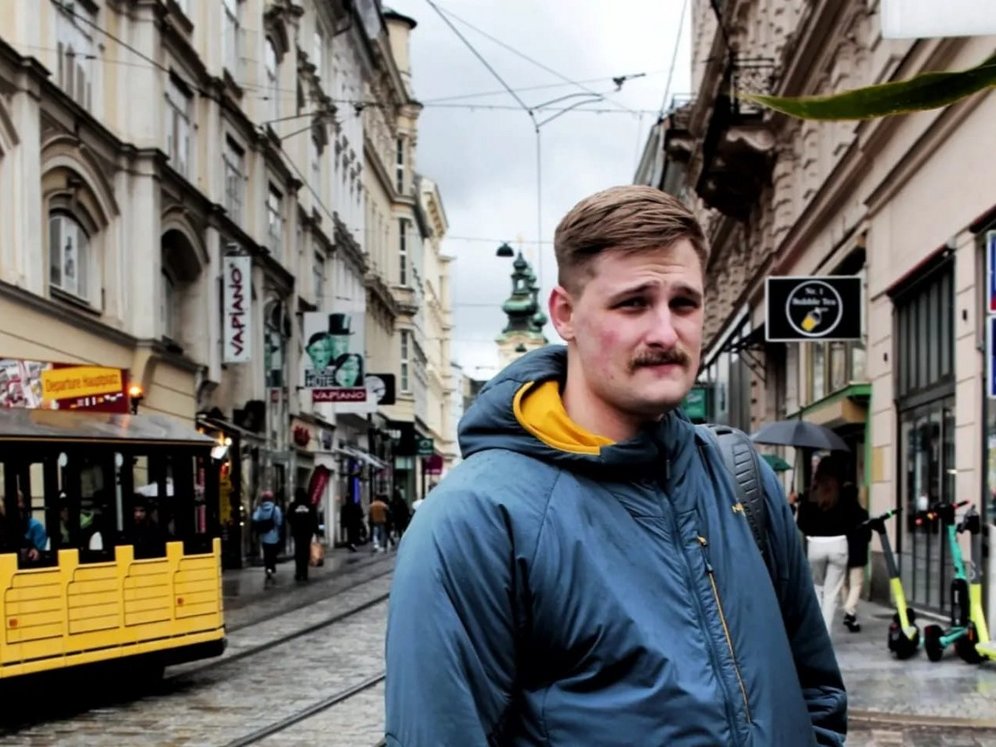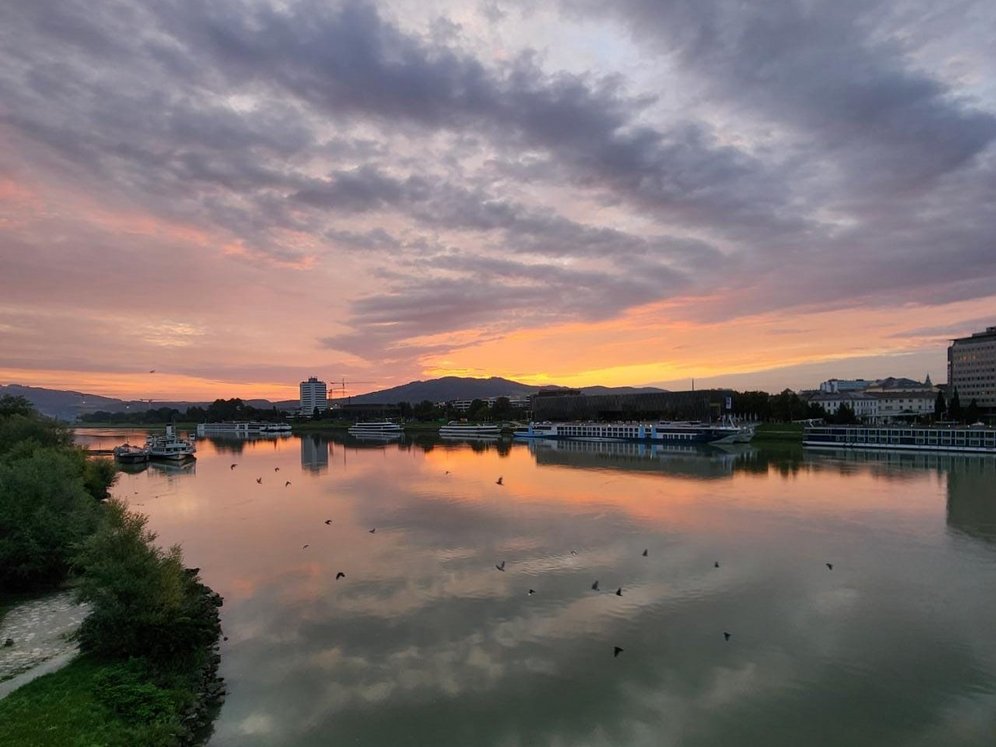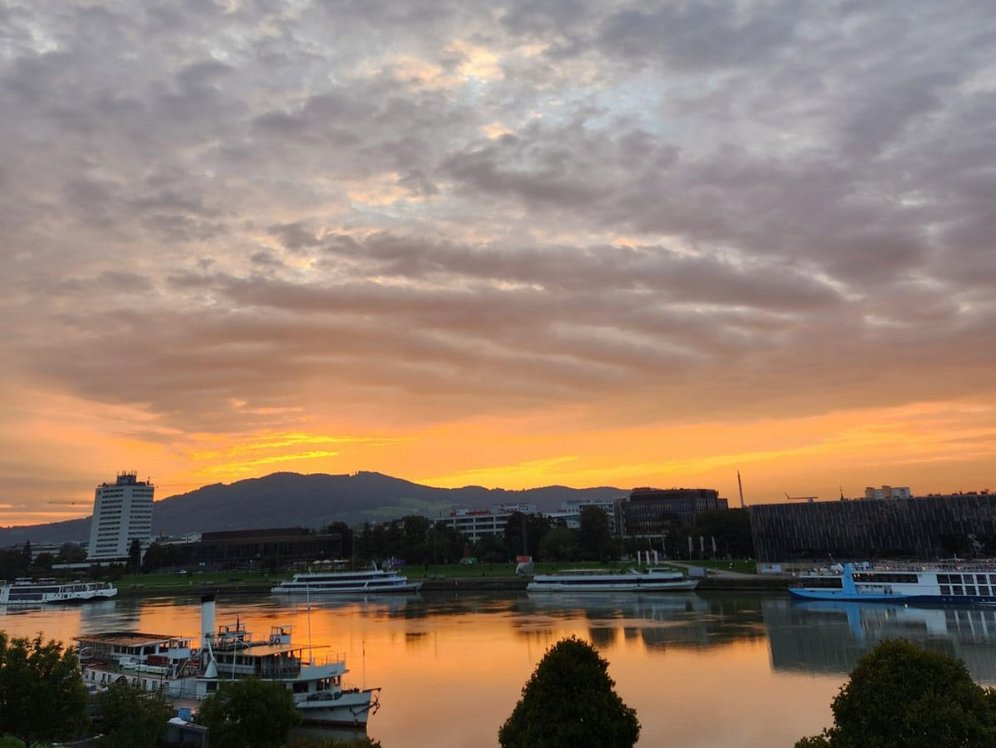„Notes from the Danube: A farewell to Linz”
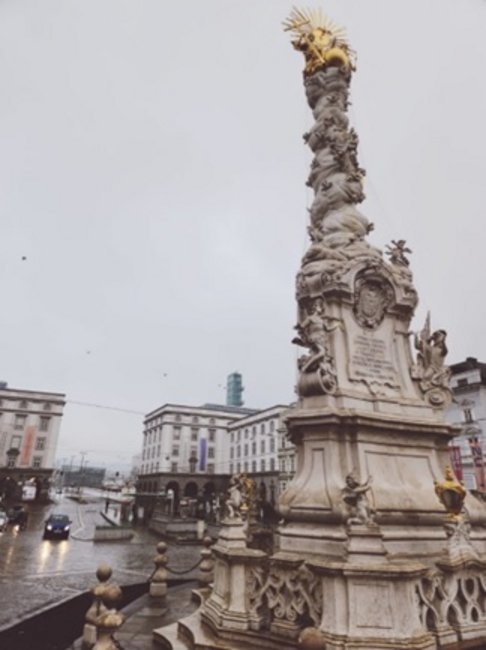
Holy Trinity Column at Linz’s main square, probably the most famous post-card of Linz.
I still remember the day I arrived here. In fact, I can recall the day’s events fairly well, but not so much its details. In total, it took over 24 hours to travel between my city and Linz. In such a state like that, of extreme tiredness and lack of sleep, one doesn’t normally perceive the world around one very well. The whole reality is condensed only in the weighing eyes, the anguishing headache and a heavy fantasy, whose imagination converts into our greatest desire, to just be able to lie down somewhere and finally rest as much as you can. My perception, on that early autumn day, was no exception to this rule.
I still remember the taxi I took, as well as its rather dirty glass, which I used as a support for my tired face. Much more than that, frankly, I don’t keep from that day, either the baroque buildings, the graceful streets, the non-smiling people. None of it held my attention back that day. But a single image, a single memory, which I perhaps preserve more clearly than any event of the present day, constitutes a true exception to this kingdom of renegade memories: the first time my eyes touched the Danube.
The taxi began to cross the bridge and my whole spirit was converted to paying attention to those black waters, of which I had heard they were blue. “Is this the same river?” — I asked myself — “yes, I believe so, since, as I have heard, it is the river that divides the city in half,” replied that spirit of mine, perhaps a little disappointed. But hopelessness is the antithesis of the human spirit and, in a mixture of astonishment and pleasant surprise, I saw seven colors of a playful rainbow appear on the horizon, amidst a serious and confused mist. That, to my knowledge, was the only rainbow I had ever seen in the whole of Europe.
Particularly, I am not one to believe in omens, foresight or premonitions. I believe, like Epicurus, that the gods or the cosmos have no influence on the course of our lives. This certainly bequeaths fate to our weak hands, which in this cruel and insecure fragility often find themselves in troubled waters, as troubled were the waters of the Danube that day. If, however, the gods are not interested in our lives, on that day, paradoxically, the gods wanted to tell me, through a depressed sky, an apathetic river and a triumphant rainbow, that only fate in those hands can make life colorful.
Yes! Today I firmly believe this: the fluvials that I carry in the lines of my hand, and which have their mouth in the fingerprints that I imprint on the world, constitute all the glory of my humanity. To see a vast path ahead of me and all the symphony of the future was, until then, a real anguish. Today, however, I understand that anguish and happiness have one and the same object, but differ in their modes of being. The Greeks saw happiness in excellence; I now see happiness in the simple course of life, in the enjoyment of a world that is there, and whose hostility lies only in its indifference. I see happiness in the mastery of this hostility, in the act of gently holding on to the reins of a destiny that is being fulfilled all the time and that, in this unbridled future, is also fulfilling ourselves.
In Linz, through the gothic alleys and secret corners, I often found myself lost. I experienced the emptiness of routine, the heartbreak of colorless days and the taste of nothingness. Many times I walked completely alone, like a lurking shadow, ignored by the souls who crossed my path. In expensive and diverse cafés, many times I was accompanied only by a little notebook, and I made it my most faithful confessor and best friend.
Even so, every time I crossed that bridge and looked out over those waters with their rough waves, I felt an incredible freedom pulsate in my heart. And so, with my forehead raised and chest heaving, I finally took on that reassuring tranquility in the face of life, its problems and its sorrows. I learned, as never before, to assume the impossibility of solving the human drama, and I made the courage to live each day as unique. Never before have I had such an easy sleep, and yet never before have I been so awake, attentive to the problems that cross the universe and being aware of their silent answer, immersing myself in that surrealism that passes the eyes of every insomniac. In the unveiling of the realities of daily life, of its contradictions and hypocrisies, I finally perceived the consecration of the masks, in a theater of cordiality full of rules.
I learned, then, to appreciate the sincere friendship, the sincere laughter and the perpetual jocularity of the spirit that knows how to return to childhood, because it is proper to a child to be, at the same time, close to reality and fixed in the creative power — and the grace of life is in this power. I imagine, I amuse myself, I delight in my thoughts and in this I make poetry of the act of living, which is both tragic and comic, both rich and simple.
It is not surprising that Linz has taught me so much. Here I have laughed and shed tears, made good friends and honest disagreements, met people I will carry in my heart forever and others that, due to the misfortune of limited memories, I will forget with time. Apart from the Lusophony, sometimes I got lost in the streets of this city, which sometimes seemed to me peaceful, sometimes seemed enormous. But, when it comes to life and the things that really matter, I found myself incredibly. Linz, like the whole city I inhabited, became forever an inseparable part of me. And now, taking with me all the lessons I have learned, I say goodbye with teary eyes, but with a serene heart contemplating the paths that life has in store for me.
Link zum Blog
https://medium.com/@giovannitremea/notes-from-the-danube-a-farewell-to-linz-53076539c9dd

